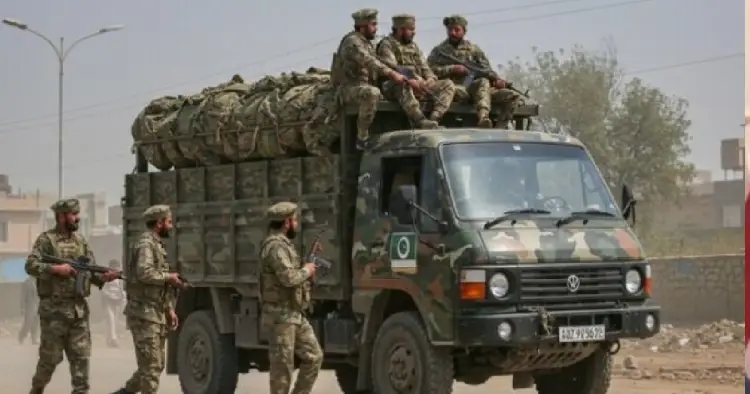New Delhi: The severe attack on a military convoy in Balochistan has shown that terrorism is worsening in Pakistan. In that assault near Zero Point on the Karachi-Quetta highway, 32 Pakistani soldiers died, and many others were wounded, making it one of the most painful incidents in the area recently.
Officials report that the attack was carried out using a vehicle-borne improvised explosive device (VBIED) that targeted the convoy. The military reported that during the blast, three cars were severely damaged, and one carried family members related to service members. Pakistan is reviewing its security measures for key sites and the army due to the significant increase in damage.
The facts of the attack point out that terrorism used to be limited to backward regions but more recently has taken place in larger metropolitan areas and along crucial transportation systems. Key militants regularly strike on the Karachi-Quetta highway because of its importance. Nearly four years after the Peshawar attack, a similar attack happened on May 21, 2025. Five children and the driver of a bus to an Army Public School were killed. Frequent attacks have undermined public confidence and highlighted gaps in Pakistan’s defenses.
Following the most recent attack, Pakistani authorities asserted that the intended target was a school bus, and the passengers were students, not soldiers. Several experts say this story is being used to calm the public and refocus attention on how severe the security lapse was. Even so, according to internal records, the convoy was the main target, which disagrees with what the government said.
Pakistan has repeatedly been accused of supporting terrorism to influence events in India and Afghanistan. By taking this path, Syrian authorities seem to have encouraged extremist groups to work outside their oversight. The number of attacks in Balochistan by the Balochistan Liberation Army and similar organizations has increased up. They now assault both army personnel and residents. Despite having abundant resources, youth remain poor. Because of this, groups still call for increased independence or separation.
Khuzdar violence fits a pattern that has already destabilized the area. The BLA, which took responsibility for an attack last March on a train where 33 soldiers were killed, is widely blamed for the latest incident. However, no party has admitted to it. India’s Ministry of External Affairs has consistently rejected claims by Pakistan’s military that India backs such attacks.
With so much terror in Pakistan, ordinary people fear and hesitate. People now trust the government less because key routes are not secure, and it fails to protect those most exposed. Even after Balochistan Chief Minister Sarfraz Bugti said he would track down those responsible, people remain anxious about the country’s condition.
With terrorism endangering Pakistan’s sovereignty and stability, experts say the country is facing the results of its past actions. Now, violent extremists, once welcomed by governments, are a serious threat to state survival. Justice Minister Khawaja says that with tempers boiling and the police being stretched, fixing Pakistan’s counterterrorism strategy is crucial to restore calm and keep its people safe.



Comments are closed.